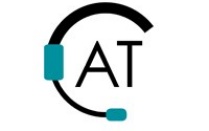Full citation
Becker, M.C., & Zirpoli, F. (2003). Organizing new product development: Knowledge hollowing-out and knowledge integration — the FIAT Auto case. International Journal of Operations & Production Management, 23(9), 1033-1061.
Format: Peer-reviewed article
Type: Research — Non-experimental
Experience level of reader: Fundamental
Annotation: The paper considers NPD from a resource-based perspective, which reveals negative long-term effects of outsources on the organizations' knowledge base, despite beneficial short-term effects on costs.
Setting(s) to which the reported activities/findings are relevant: Large business, Small business (less than 500 employees)
Knowledge user(s) to whom the piece of literature may be relevant: Manufacturers
Knowledge user level addressed by the literature: Individual
This article uses the Commercial Devices and Services version of the NtK Model
Primary Findings
Barrier: Outsourcing expertise in NPD is difficult to implement in two ways. First, the danger of hollowing out the internal knowledge base so that the organization loses the core competence in key areas. Second, the firm loses the ability to integrate expertise from within the firm and across the supply chain. The firm may realize short-term cost savings but risks losing core competence to external sources.
Corporate case study.
Occurrence of finding within the model: Step 4.1, Step 4.6
Carrier: An organization can designate Boundary Spanners — staff who establish effective communication protocols between the internal and external sources of expertise. The Boundary Spanners keep the internal units involved in the same activities as the external suppliers, by way of dry runs, shadow engineering, or patenting in the supplier's domain. Organizations gain the speed and cost efficiency of outsourcing, while maintaining and updating core competencies.
Corporate case study.
Occurrence of finding within the model: Step 4.1, Step 4.6
